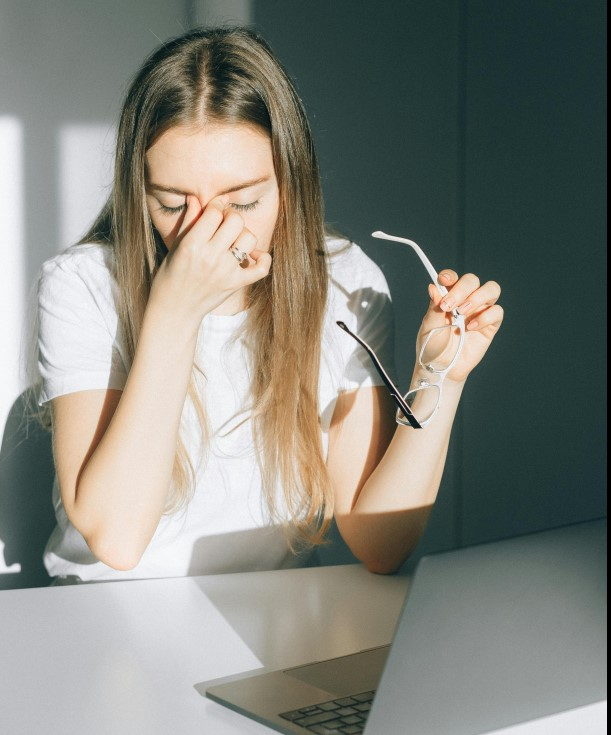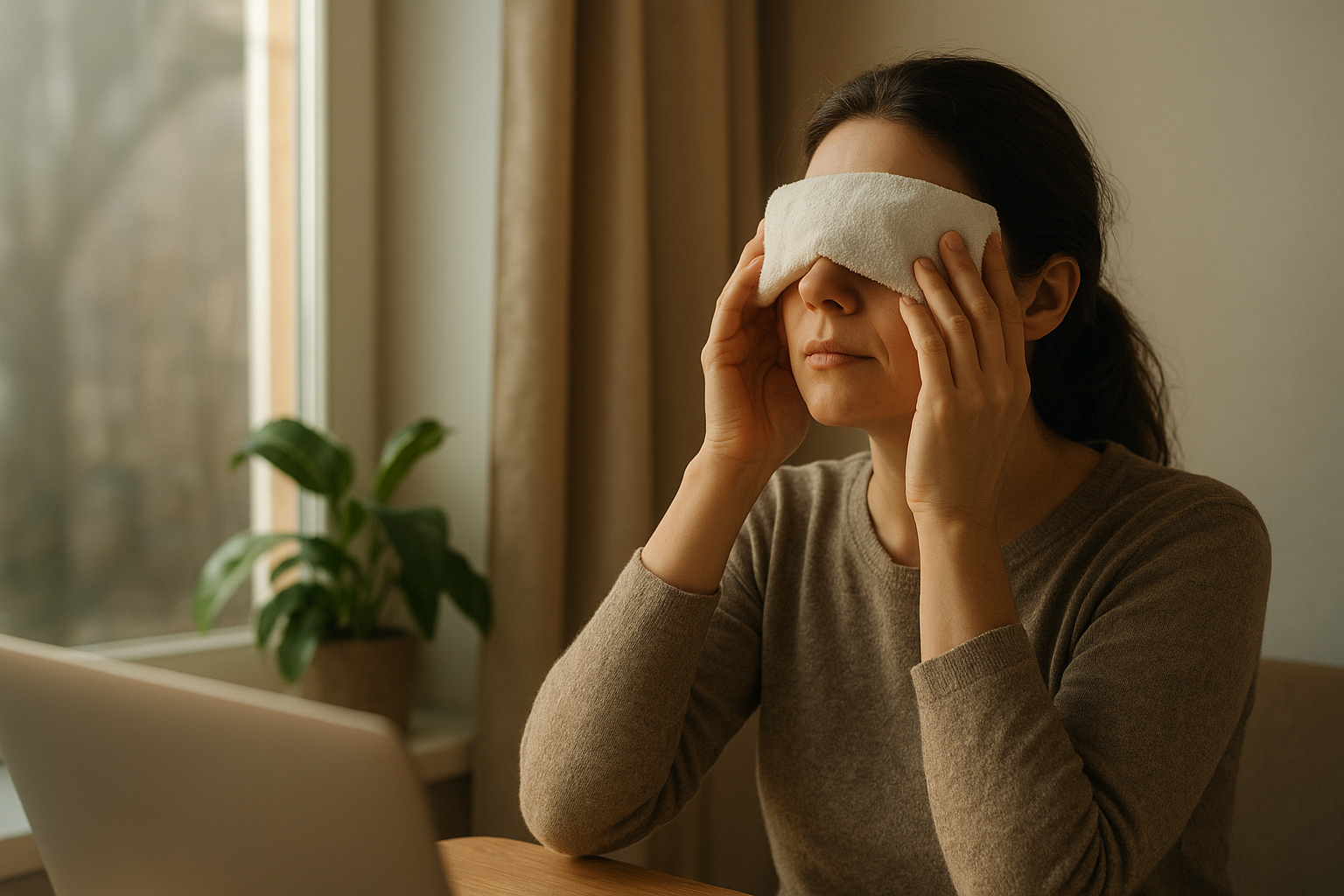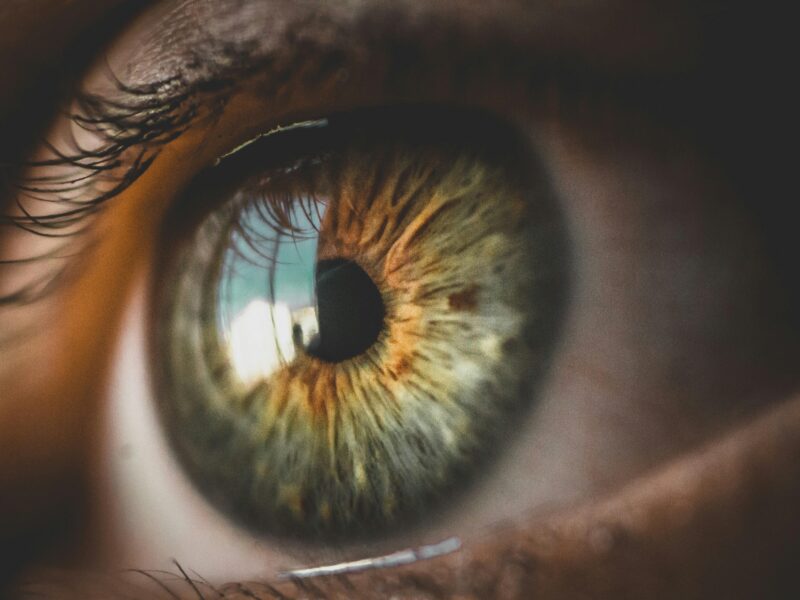👁️ Introduction
Do your eyes feel heavy, sore, or dry after a long day? You’re not alone. Modern life exposes us to artificial light, screens, and visual stress that our eyes were never designed for. The result — eye fatigue, also known as asthenopia — is one of the most common complaints among both office workers and students.
While eye drops and medications exist, more people are turning to natural remedies to relieve discomfort and support long-term vision health. The good news? Many traditional and science-backed methods can significantly reduce eye strain, improve focus, and promote relaxation.
In this article, we’ll explore what really works, separating myths from evidence-based natural solutions for tired eyes.
👀 1. What Is Eye Fatigue?
Eye fatigue (asthenopia) occurs when your eye muscles become overworked — typically due to prolonged near-focus activities such as reading, computer use, or phone scrolling.
Key Symptoms:
- Blurred vision
- Headache or eye pressure
- Dryness or burning
- Sensitivity to light
- Difficulty concentrating
These symptoms are temporary but can lead to chronic digital eye strain if ignored.
💻 2. Common Causes in the Digital Age
We blink 60% less when using screens. This reduces tear moisture and causes evaporative dryness.
Other common triggers include:
- Poor lighting (too bright or dim)
- Improper monitor height or distance
- Blue light exposure
- Dehydration
- Stress and lack of sleep

🌿 3. Natural Remedies That Actually Work
Here are proven natural ways to ease fatigue and restore comfort — no medication required.
🧖♀️ a. Warm Compress Therapy
Warm compresses improve circulation and loosen oil glands near the eyelids, helping relieve dryness and pressure.
How to do it:
- Soak a clean cloth in warm water.
- Apply over closed eyes for 5–10 minutes.
- Repeat twice daily.
Clinical studies show that warm compresses improve meibomian gland function, a major cause of dry eye fatigue.
🥒 b. Cucumber or Cold Compress
Cold therapy reduces puffiness and soothes inflammation.
- Place cucumber slices or a chilled cloth over your eyes for 10 minutes.
- Great after long screen hours or lack of sleep.
💆 c. Gentle Eye Massage
Improves blood flow and relaxes strained muscles.
Use clean fingers to gently massage:
- Temples
- The area below eyebrows
- Under eyes in circular motions
Avoid pressing directly on the eyeball.
💧 d. Hydration and Nutrition
Your eyes need hydration — both externally and internally.
Drink plenty of water and consume foods rich in:
- Omega-3s (flaxseed, salmon, walnuts)
- Vitamin A (carrots, sweet potatoes)
- Vitamin C & E (oranges, almonds)
These nutrients support the tear film and reduce oxidative stress.
🍵 e. Herbal Teas and Natural Supplements
Herbs like chamomile, eyebright, and green tea contain antioxidants that soothe eye tissues.
✅ Chamomile tea bags — cool and apply over closed eyes.
✅ Eyebright extract (Euphrasia officinalis) — natural anti-inflammatory properties.
✅ Bilberry & lutein supplements — scientifically linked to improved visual performance.
🌸 f. Essential Oils (with caution)
Use diluted lavender or rose oil around temples for relaxation — never directly on eyes.
🧘 4. Eye Exercises for Relaxation
👁️🗨️ 1. The Palming Method
Rub your hands together, place over eyes (without pressure) for 30 seconds — promotes darkness and rest.
🏔️ 2. Near-Far Focusing
Hold a pen 10 inches away. Focus on it, then switch focus to something 20 feet away. Repeat 10 times.
🔄 3. Slow Eye Rolling
Roll eyes gently clockwise and counterclockwise.
This strengthens extraocular muscles and improves blood flow.

🛋️ 5. Creating an Eye-Friendly Environment
- Adjust screen brightness to match your surroundings.
- Keep your screen 20–28 inches away.
- Use anti-glare filters or matte monitors.
- Maintain 40–60% humidity indoors.
- Take 20-20-20 breaks every 20 minutes.
😴 6. The Role of Sleep and Stress
Sleep restores eye lubrication and nutrient flow.
Poor sleep reduces tear production, while stress increases eye tension.
Incorporate:
- Meditation (10 min daily)
- Breathing exercises
- Avoiding screens 1 hour before bed
🧠 7. Myths vs. Facts About Natural Eye Remedies
| Myth | Reality |
|---|---|
| “Eye drops are always needed.” | Often lifestyle and hydration changes are enough. |
| “Cucumber slices cure eye fatigue instantly.” | They soothe temporarily but don’t fix underlying dryness. |
| “Only medication helps.” | Natural methods like warm compress and omega-3s have clinical support. |
❓ FAQ
Q1: How often should I use natural remedies for eye fatigue?
Warm compress or eye massage once or twice daily provides consistent relief.
Q2: Are herbal eye drops safe?
Use only those approved for ophthalmic use — avoid homemade mixtures.
Q3: Can screen users rely solely on natural methods?
Yes, if combined with good ergonomics, hydration, and lighting adjustments.
Q4: How long until I notice improvement?
Typically within 1–2 weeks of consistent practice.
✅ Conclusion
Eye fatigue is a sign that your visual system is asking for rest — not medication.
Natural remedies like warm compresses, hydration, and eye exercises offer a gentle yet effective way to restore balance.
With a few daily habits — proper lighting, mindfulness, and nutrition — you can not only prevent eye strain but also enhance your long-term vision health naturally.
Your eyes deserve care — and nature already provides everything they need. 🌱


